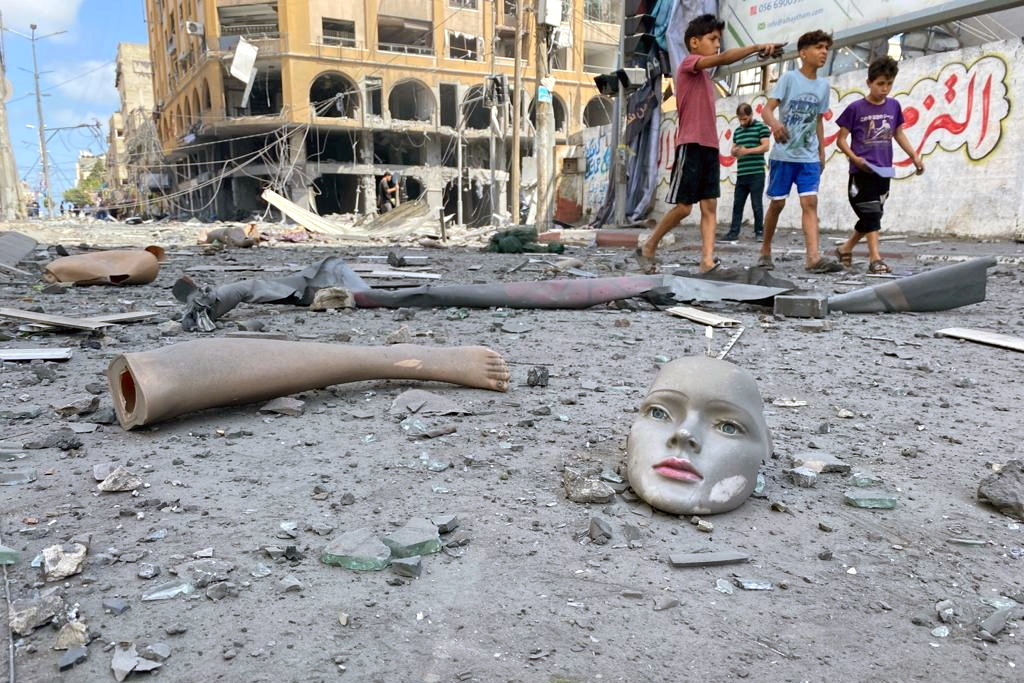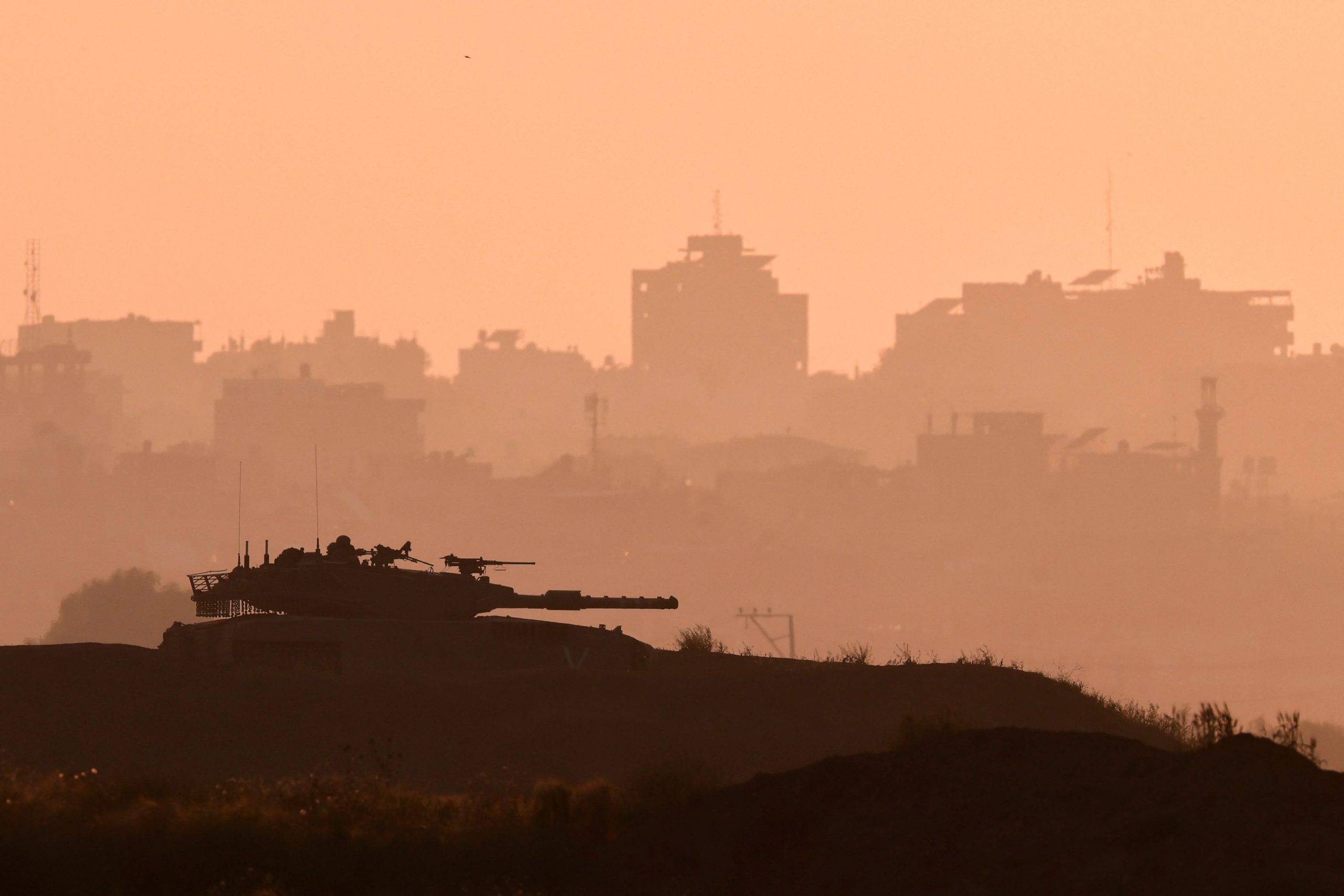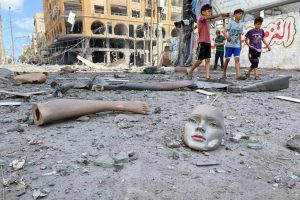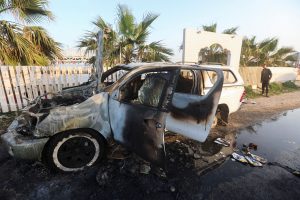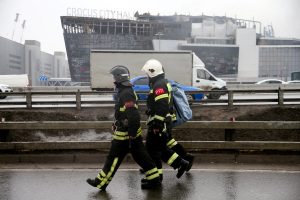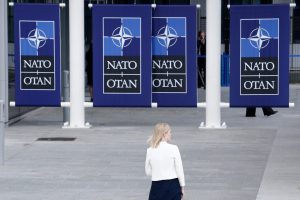Talks for a cease-fire in Gaza and for the release of hostages held by Hamas resumed Sunday, as Israel allowed a significant increase in humanitarian aid into the enclave and international pressure built to reduce the civilian toll of the fighting.
Central Intelligence Agency Director William Burns began meeting with Egyptian and Qatari mediators in Egypt’s capital on Sunday, as the conflict enters its seventh month. An Israeli delegation led by David Barnea, director of Israel’s Mossad intelligence agency, was set to join them in Cairo. Hamas officials were also in Cairo, Egyptian officials said.
Intense White House pressure on Israel to take immediate steps to alleviate the humanitarian crisis in Gaza appeared to bear fruit on Sunday. Israel inspected 322 aid trucks laden with medical equipment, medicines, tents and water and allowed them to enter Gaza on Sunday, Israeli officials said, the highest one-day number since the war began in October. Before the war, Gaza received about 500 trucks a day.
The cease-fire talks have been at an impasse for months over whether Israel will concede to Hamas’s demand to allow the unrestricted return of Gazans to the northern part of the enclave, in addition to the withdrawal of Israeli troops from populated areas—moves that if done in tandem would likely allow Hamas to regain power in the strip and survive the war . Hamas is also demanding that Israel release thousands of Palestinians held in Israeli jails in exchange for the hostages.
The Israeli delegation received a mandate to be more flexible on all the issues related to the negotiations, including the return of civilians to northern Gaza, according to an Israeli official familiar with the negotiations.
Israeli Prime Minister Benjamin Netanyahu on Sunday blamed Hamas for the negotiations impasse, saying the group’s demands were extreme because they would end the war permanently and leave Hamas intact. He said that despite heavy international pressure on Israel to agree to a cease-fire, Israel would only do so if the hostages are released.
“Israel is ready for a deal, Israel is not ready for surrender,” Netanyahu said. Hamas, in turn, has accused Israel of not compromising for a deal.

Israelis rally for the immediate release of the hostages, six months after they were kidnapped during the deadly October 7 attack on Israel by Palestinian Islamist group Hamas from Gaza, near the Knesset, Israel’s parliament in Jerusalem, April 7, 2024. REUTERS/Ronen Zvulun
Family members of hostages on Sunday called on the Netanyahu government to do more to reach an agreement to free the captives. More than 120 hostages—among them many who are believed dead—remain in the captivity of Gaza militants.
“There’s no question the war must be won and Hamas must be eradicated. But the hostages are running out of time,” Orna Neutra, the mother of Israeli-American hostage Omer Neutra, told CNN’s “State of the Union.” “It’s not clear whether the Israeli administration has the priority right.”
Rachel Goldberg-Polin, the mother of hostage Hersh Goldberg-Polin said on CBS’s Face the Nation: “I feel that I failed, and I feel that our governments have failed, and I feel that all the parties at the table have failed to get these 133 souls back home.”
In Israel, Netanyahu is under increasing pressure to be more flexible in the negotiations as more details emerge over how many hostages have died in captivity since they were seized during Hamas’s Oct. 7 attacks, which Israel says killed around 1,200 people, and the harsh conditions endured by those hostages who are still alive.
Antigovernment demonstrations ignited across Israel on Saturday night, with protesters clashing with police as they pushed their demands for Netanyahu to agree to a hostage deal in addition to early elections.
Israel on Sunday said it had finished operations in the southern Gaza city of Khan Younis—which began in early December—and pulled its troops from there. That means Israel has now largely withdrawn its troops from populated areas, but they are still located in strategic axis points between southern and northern Gaza and deployed along the periphery of the enclave.
Israeli military officials said the troops were leaving Khan Younis “to recuperate and prepare for future operations.” After Israeli troops leave the city, they are expected to continue carrying out counterinsurgency operations there and in other parts of Gaza when necessary, analysts said.
Israeli Defense Minister Yoav Gallant, supervising the exit from Khan Younis on Sunday, said troops would begin to prepare for an operation in Rafah, the Gazan city on the border with Egypt where more than a million civilians are sheltering.
U.S. officials have said they would oppose any Rafah operation that doesn’t have a credible plan to protect civilians. The officials say they haven’t seen such a plan and some say they don’t believe there can be one.
Analysts say that Israel has been quietly making a transition toward the next phase of its war, swapping large ground maneuvers for targeted raids.
“It’s not only a question of boots on the ground there, it’s a question of what they do and they haven’t been doing that much,” said Ofer Shelah, a military analyst at Tel Aviv’s Institute for National Security Studies.
The Biden administration is pressing Israel to permit limited numbers of civilians displaced in the conflict to return to northern areas, according to U.S., Israeli and Egyptian officials.
The White House has called for an immediate cease-fire and for rapid steps by Israel to increase aid shipments into Gaza, as well as improved security coordination between the Israeli military and aid groups. Several halted operations after an Israeli drone strike on Monday killed seven workers for World Central Kitchen who were delivering supplies.
Israel said it was opening Ashdod port as well as the Erez border crossing in the north to facilitate more shipments into Gaza, as well as other moves sought by President Biden in a call with Netanyahu on Thursday, according to John Kirby, a spokesman for White House National Security Council.
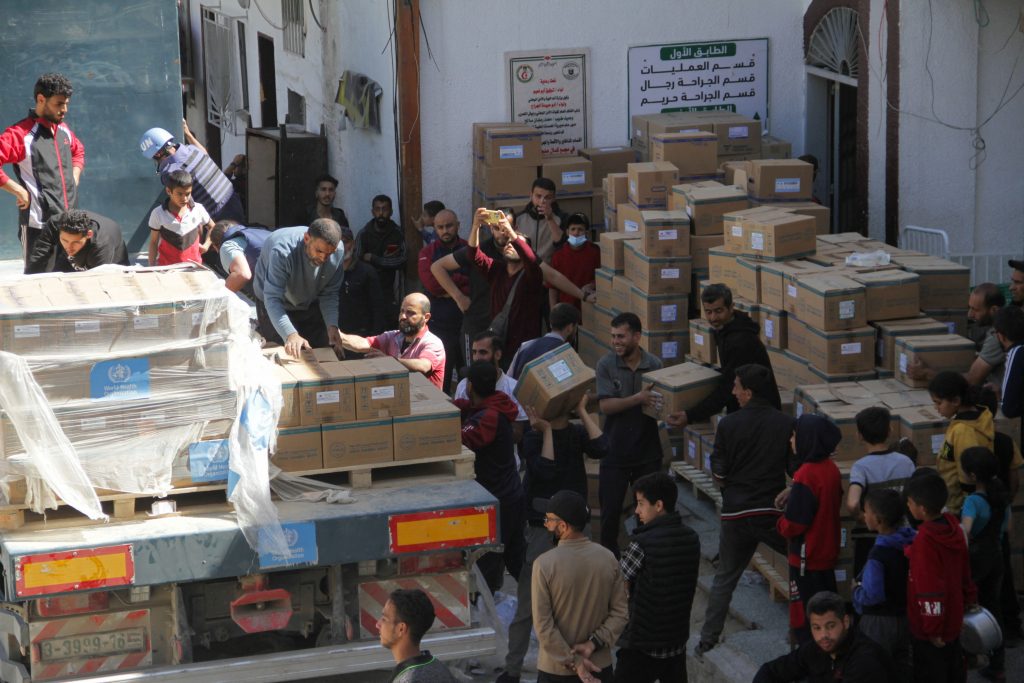
People unload medical aid from a truck, near Kamal Adwan Hospital in the northern Gaza Strip, amid the ongoing conflict between Israel and Hamas, April 6, 2024. REUTERS/Mahmoud Issa
The administration needs to see if Israel would “actually meet these commitments over time in a sustained and verifiable way so that confidence can be restored not just between aid workers in the IDF, but between the people of Gaza and Israel,” Kirby told ABC’s “This Week” on Sunday, referring to the Israel Defense Forces.
Chef José Andrés, the founder of World Central Kitchen, described the death of his colleagues as the latest in a series of avoidable communications breakdowns and tactical decisions by the Israeli military that have hampered aid deliveries, left large parts of Gaza in ruins, and contributed to a humanitarian crisis.
“I think the IDF knows better than anyone that they can be a better army,” Andrés told ABC’s “This Week” on Sunday. “We cannot be winning a war destroying the livelihoods of two million people.”
On Friday, Biden sent letters to leaders of Egypt and Qatar, which are mediating the talks along with the U.S., urging them to secure a commitment from Hamas to agree to and honor a deal, a senior Biden administration official said.
Since the war in Gaza began, more than 33,000 people in Gaza, mostly women and children, have been killed in the fighting, according to Palestinian health authorities, whose numbers don’t distinguish between militants and civilians.
Write to Dov Lieber at dov.lieber@wsj.com and Nancy A. Youssef at nancy.youssef@wsj.com
